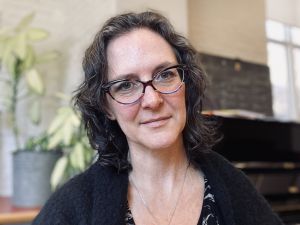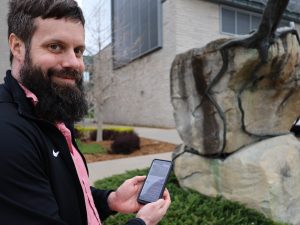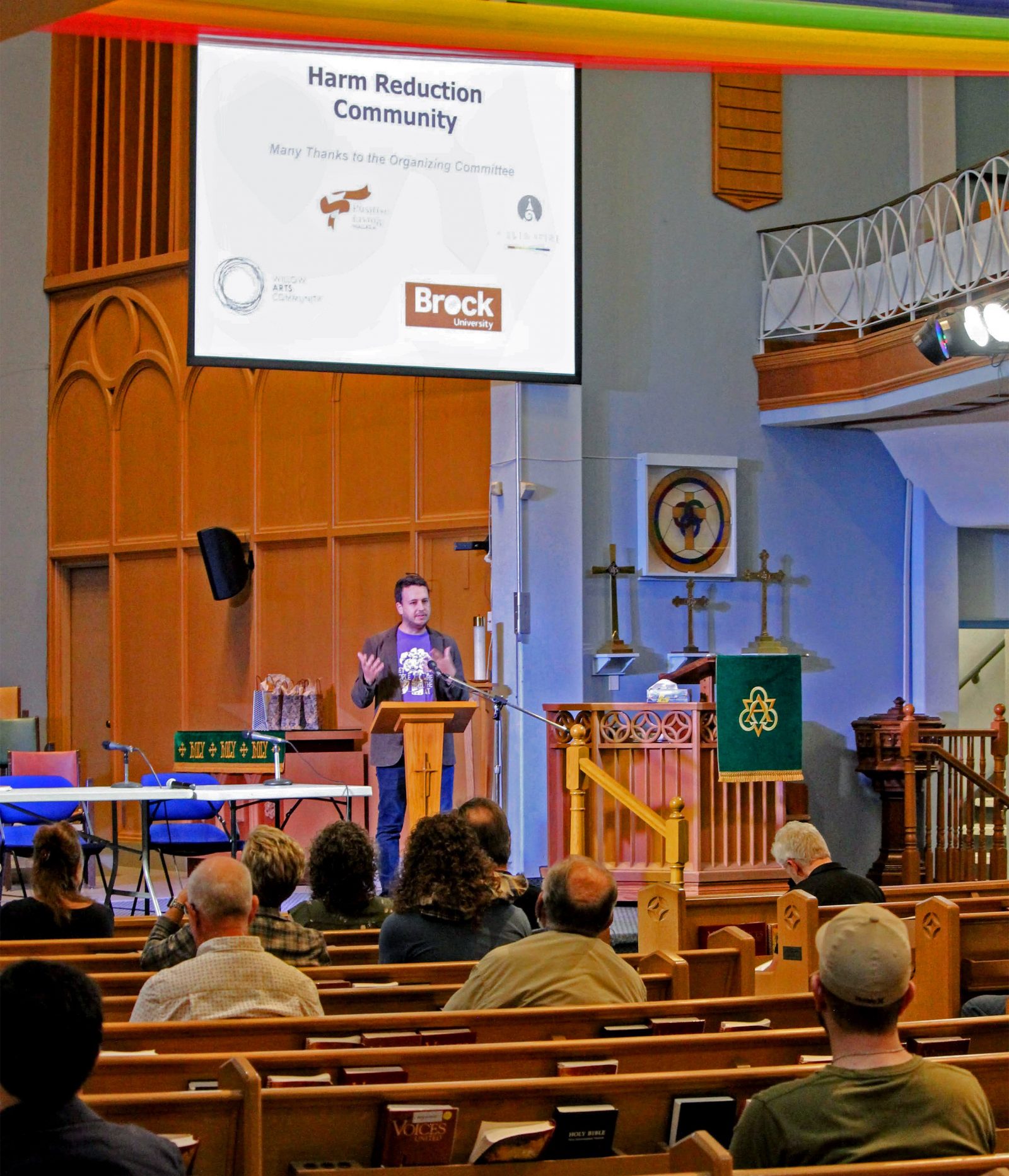 At the day-long Harm Reduction Community Forum held earlier this month, Scott Neufeld, a lecturer in Brock’s Department of Psychology, served as emcee and also presented CRISS-funded research on learning from people with lived and living experience of drug use in Niagara.
At the day-long Harm Reduction Community Forum held earlier this month, Scott Neufeld, a lecturer in Brock’s Department of Psychology, served as emcee and also presented CRISS-funded research on learning from people with lived and living experience of drug use in Niagara.Several Brock University researchers were among the organizers, presenters and attendees when the Niagara community gathered earlier this month to discuss the need for local harm reduction efforts around substance use.
Reverend Karen Orlandi, who is in her second year of study in the master’s program in Social Justice and Equity Studies, co-organized the Harm Reduction Community Forum at Silver Spire United Church, where she is the minister, on Saturday, Nov. 5.
Lecturer Scott Neufeld in the Department of Psychology also sat on the co-organizing committee, which included representatives from several community organizations, including Positive Living Niagara, Niagara Health and Willow Arts.
As part of the day’s programming, Neufeld shared research he undertook as a member of a working group for the Overdose Prevention Education Network of Niagara (OPENN).
“The working group is focused on how to better engage people with lived and living experience of criminalized substance use in the region, with a goal of thinking about how we can do a better job of engagement in the region and encourage organizations and policymakers to value what people know based on their lived experiences of the challenges of substance use or criminalization,” says Neufeld.
The working group decided to develop and conduct a survey. With funding from the Council for Research in the Social Sciences (CRISS) granted to Neufeld in May 2021, the group undertook the community-based project and surveyed 77 participants about how to support and elevate the voices of people with lived experience, whether through participating on advisory boards or coming together for grassroots advocacy efforts.
Then, with the support of a Faculty of Social Sciences Research Assistantship, Neufeld hired PhD student Xiaoyang Xia as a research assistant and together they spent the summer transcribing and analyzing the survey responses.
“The main rationale underlying this approach is to reduce the harms confronting people who use substances by enabling them to use safely in a non-stigmatized society,” says Xia. “Given that society still has a long way to come to address substance issues and inequality, harm reduction may be the best way to go if we want to save lives and improve the conditions of people experiencing substance-related issues.”
The Harm Reduction Community Forum was the first opportunity the researchers have had to share preliminary results and give insight on what those with lived experience are most interested in seeing change in Niagara.
Psychology PhD student Hamnah Shahid (MA ’22), whose research examines decriminalization of drugs and destigmatization of people who use drugs, drew on both her academic and labour organizing work to respond to audience questions during a panel discussion at the Forum.
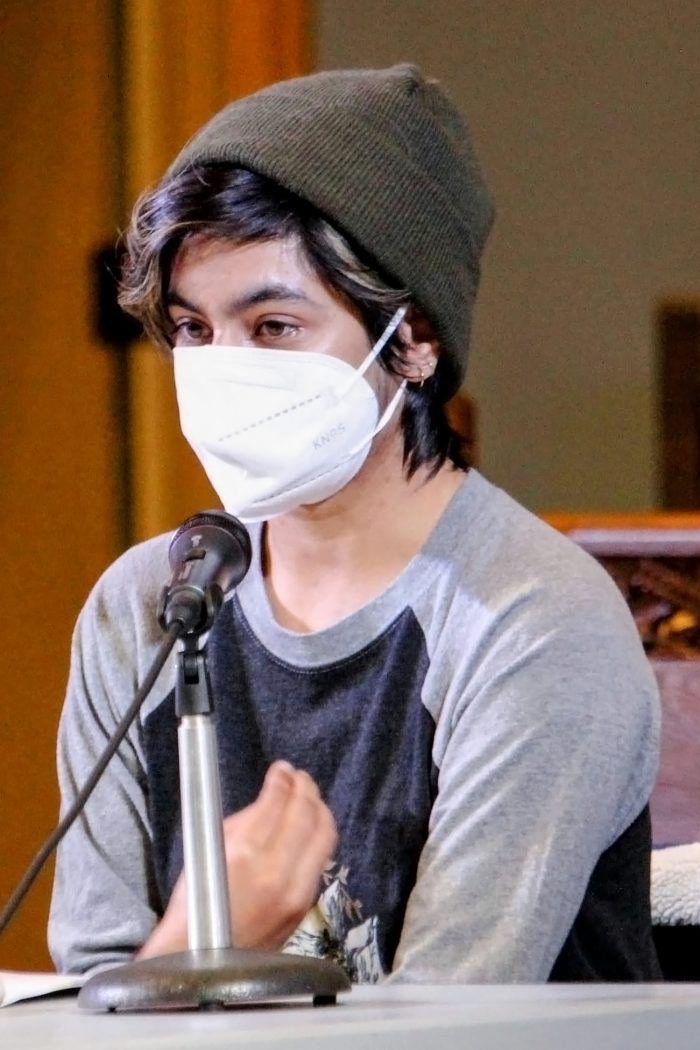
PhD student Hamnah Shahid was one of four panellists for a session facilitated by Laura Ip, Regional Councillor for St. Catharines.
“There is clearly interest in advocating for and supporting different versions of harm reduction, and I think that sometimes gets lost because we can get caught up in talking about pushback and potential hurdles,” says Shahid. “This is a compassionate way of moving forward and data from my work in Vancouver shows that the community does support it.”
Reflecting on the event, the researchers say they took away a strong sense of community and commitment.
“I found it positively affirming to see all of these people together in one space to learn about, talk about and move forward with harm reduction in the Niagara region,” says Shahid. “Niagara as a region is so geographically dispersed that sometimes it can get a bit difficult to bring everybody together, but I think that events like this show that there is the desire and the capacity for people to come together and work together on different issues.”
Neufeld agrees that the level of engagement shows promise and potential for improved harm reduction efforts in the community.
“Seeing that openness and hearing really good questions about how to practically do these things and how do you make it accessible — all that is really exciting to me,” says Neufeld. “It shows there’s more work to do but it also gives a good sense of what’s possible here.”
For Orlandi, who has worked on similar events at Silver Spire in the past, the day was all about connections.
“It was great to see ideas connecting across different disciplines, whether it’s politics, research or health care,” says Orlandi. “The other piece that I loved was watching ‘a-ha moments’ where the light was going on and folks were really grasping what harm reduction is about — that was kind of magic.”
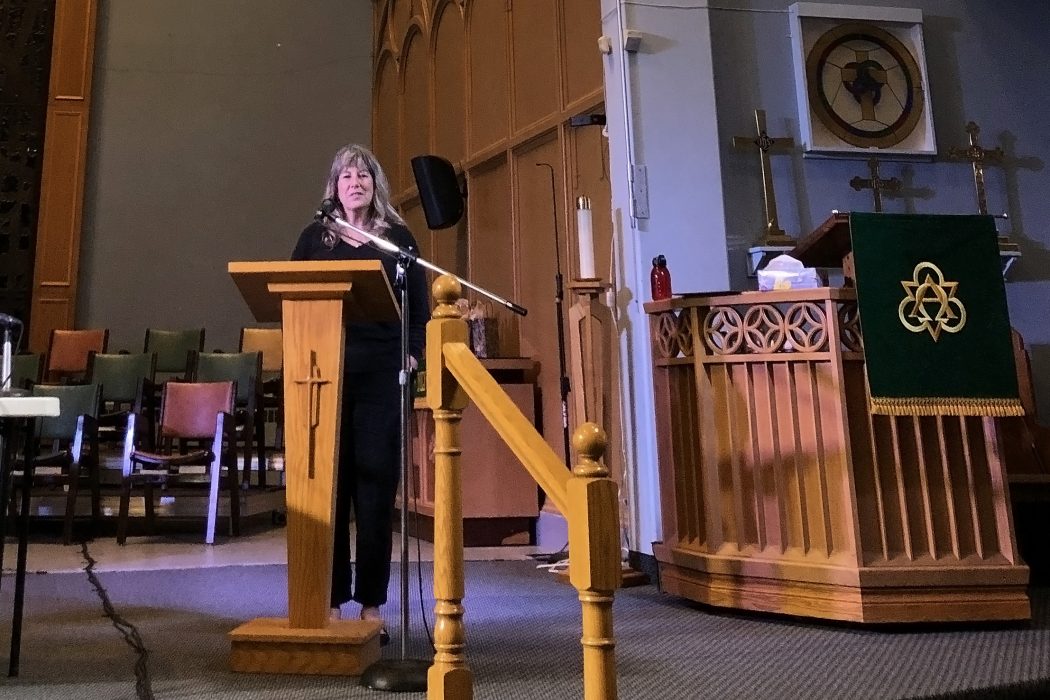
Rev. Karen Orlandi of the MA in Social Justice and Equity Studies delivers closing remarks.


